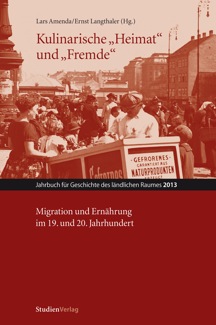Transnational daheim
Der Beitrag interkultureller Gärten zur sozialen Nachhaltigkeit von Städten
DOI:
https://doi.org/10.25365/rhy-2013-14Abstract
The paper describes the role of collective intercultural gardens for the social sustainability of cities. Intercultural gardens have received growing public attention in recent years as means of migrant integration, especially within Germany and Austria. They present an alternative concept of transnational spaces, a term much used in current debates about transnational migration. Intercultural gardens are localised and at the same time open up to become
multi-ethnic spaces. This has a positive impact on social sustainability in increasingly multiethnic cities. Far beyond the production function, intercultural gardens provide a possibility to preserve important cultural ties with the countries of origin, while at the same time literally developing ‘new roots’ in the society of the host country. The collective involvement in growing food provides new and unique opportunities of interaction and social inclusion. As intercultural gardens are organised as communal spaces, they provide new social networks for people from different provenance and encourage social learning processes. Intercultural gardens thus have an impact on two key dimensions of the social sustainability of cities; social cohesion and the stability of communities. They allow for new ways of interaction between different cultures beyond the traditional pattern of assimilation and integration. The intercultural community garden in the Austrian city of Innsbruck is used as a case study to illustrate these processes. The empirical material is based on observations during a public garden visit, discussions with a member of the core group and the qualitative content analysis of five narrative interviews with gardeners.


